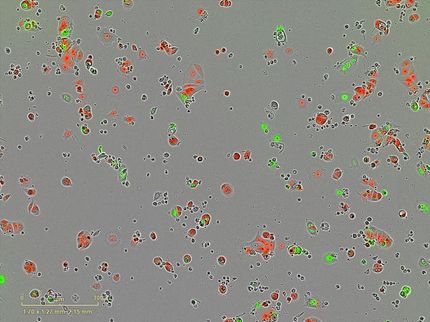Mixed chemicals in beauty products may harm women's hormones
As we go about our daily lives, we are exposed to many different chemicals that could have negative effects on our hormones. These hormonal changes have been linked to several adverse health outcomes such as breast cancer and cardiovascular disease. Therefore, understanding chemicals that influence hormone levels is important for public health--and particularly for women's health--since their exposure to these chemicals is often higher due to their presence in beauty and personal care products.
A new study published in Environment International by George Mason University Assistant Professor of Global and Community Health Dr. Anna Pollack and colleagues discovered links between chemicals that are widely used in cosmetic and personal care products and changes in reproductive hormones.
A total of 509 urine samples were collected from 143 women aged 18 to 44 years, free of known chronic health conditions and birth control to be measured for environmental chemicals that are found in personal care products, such as parabens, which are antimicrobial preservatives, and benzophenones, which are ultraviolet filters.
"This study is the first to examine mixtures of chemicals that are widely used in personal care products in relation to hormones in healthy, reproductive-age women, using multiple measures of exposure across the menstrual cycle, which improved upon research that relied on one or two measures of chemicals," Pollack noted.
This multi-chemical approach more closely reflects real world environmental exposures and shows that even low-level exposure to mixtures of chemicals may affect reproductive hormone levels. Another noteworthy finding of the study is that certain chemical and UV filters were associated with decreased reproductive hormones in multi-chemical exposures while others were associated with increases in other reproductive hormones, underscoring the complexities of these chemicals.
"What we should take away from this study is that we may need to be careful about the chemicals in the beauty and personal care products we use," explains Pollack. "We have early indicators that chemicals such as parabens may increase estrogen levels. If this finding is confirmed by additional research, it could have implications for estrogen dependent diseases such as breast cancer."
Most read news
Organizations
Other news from the department science

Get the life science industry in your inbox
By submitting this form you agree that LUMITOS AG will send you the newsletter(s) selected above by email. Your data will not be passed on to third parties. Your data will be stored and processed in accordance with our data protection regulations. LUMITOS may contact you by email for the purpose of advertising or market and opinion surveys. You can revoke your consent at any time without giving reasons to LUMITOS AG, Ernst-Augustin-Str. 2, 12489 Berlin, Germany or by e-mail at revoke@lumitos.com with effect for the future. In addition, each email contains a link to unsubscribe from the corresponding newsletter.





















































